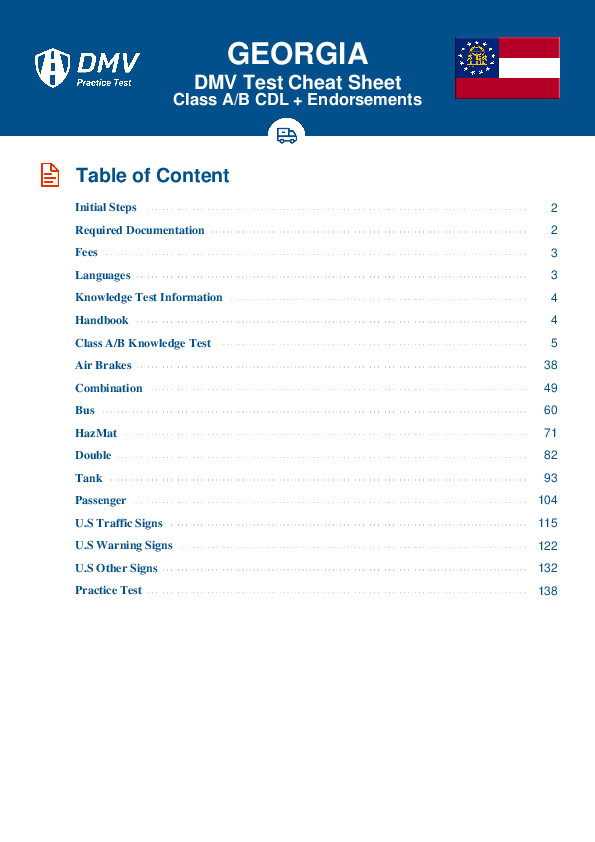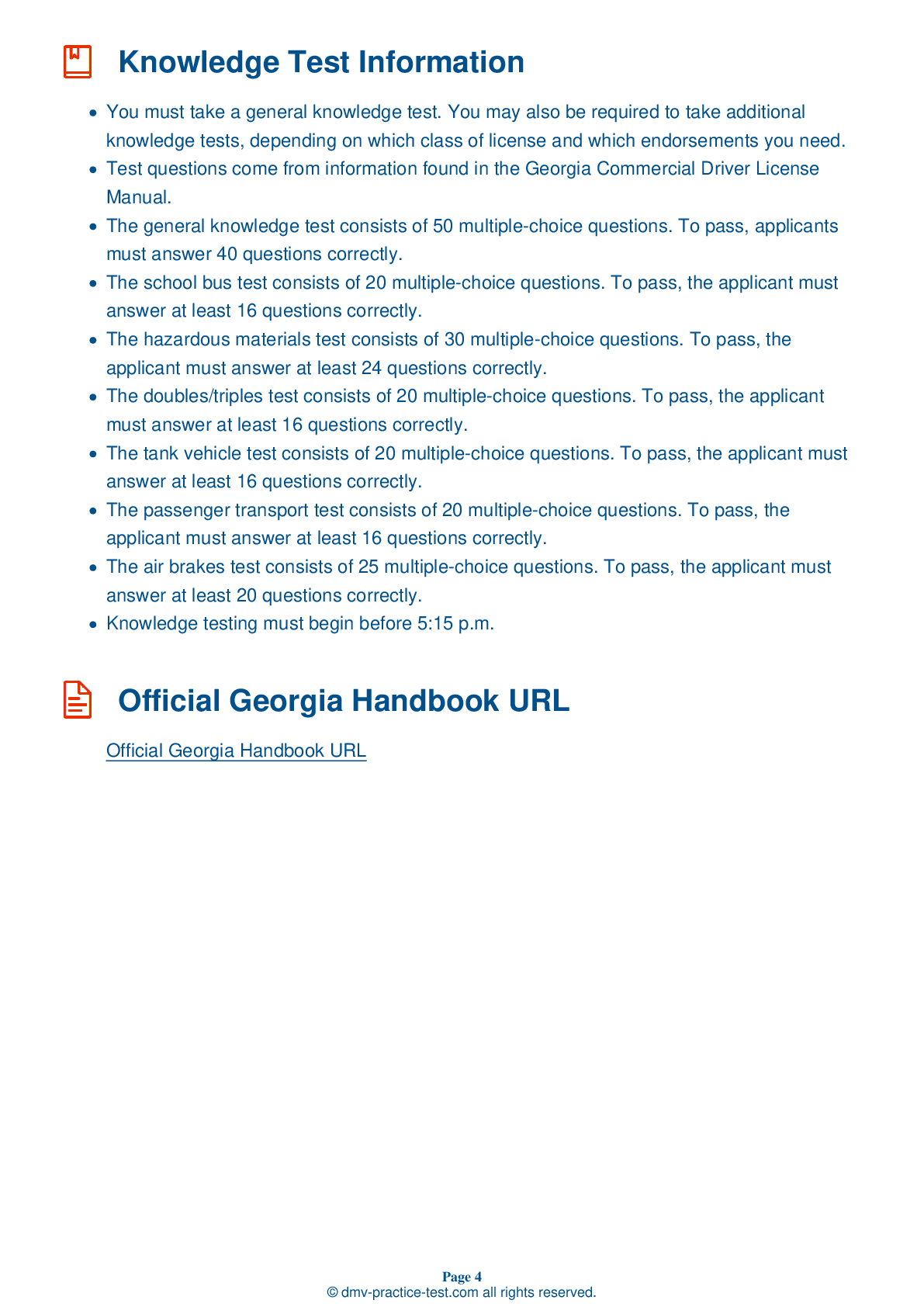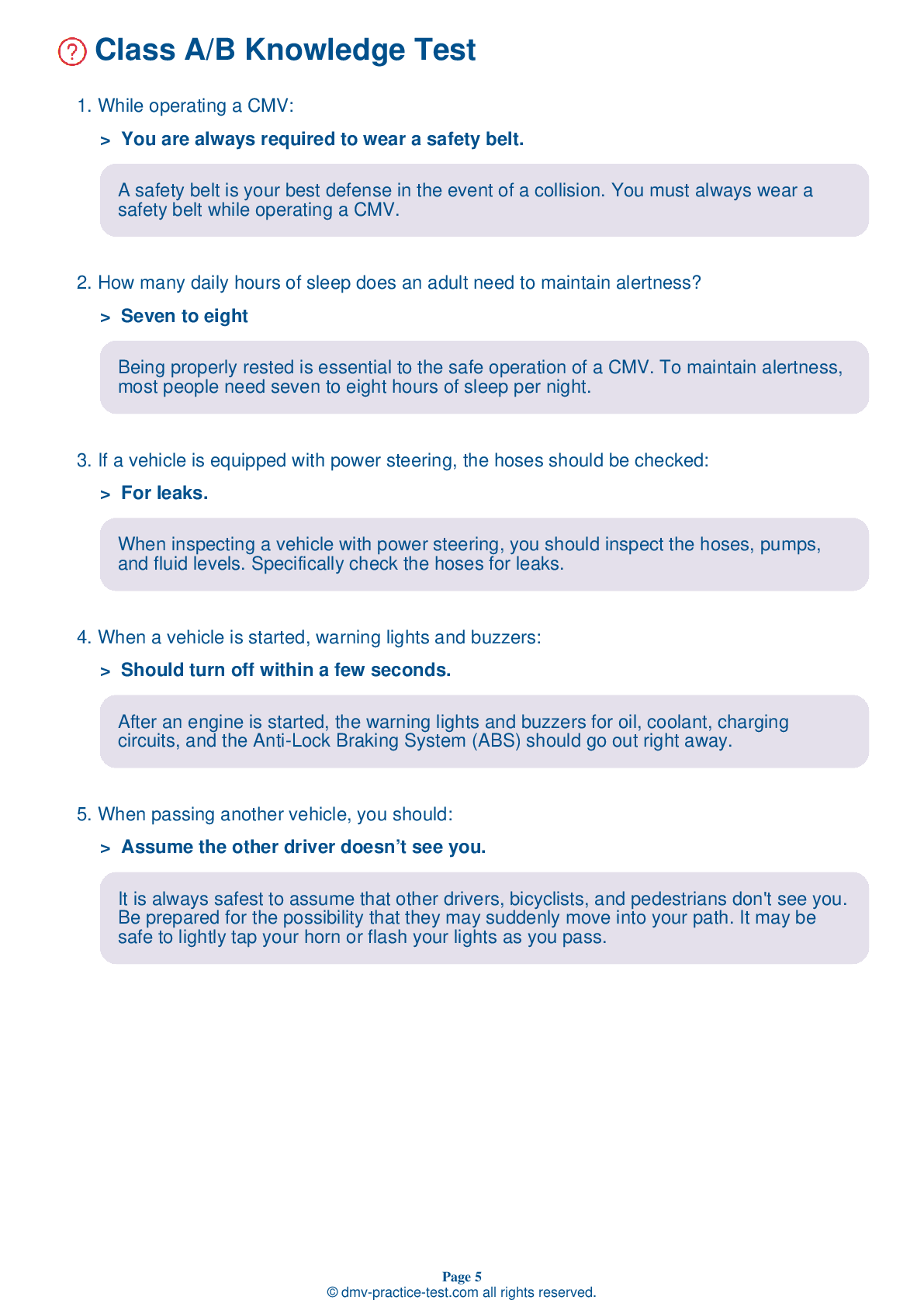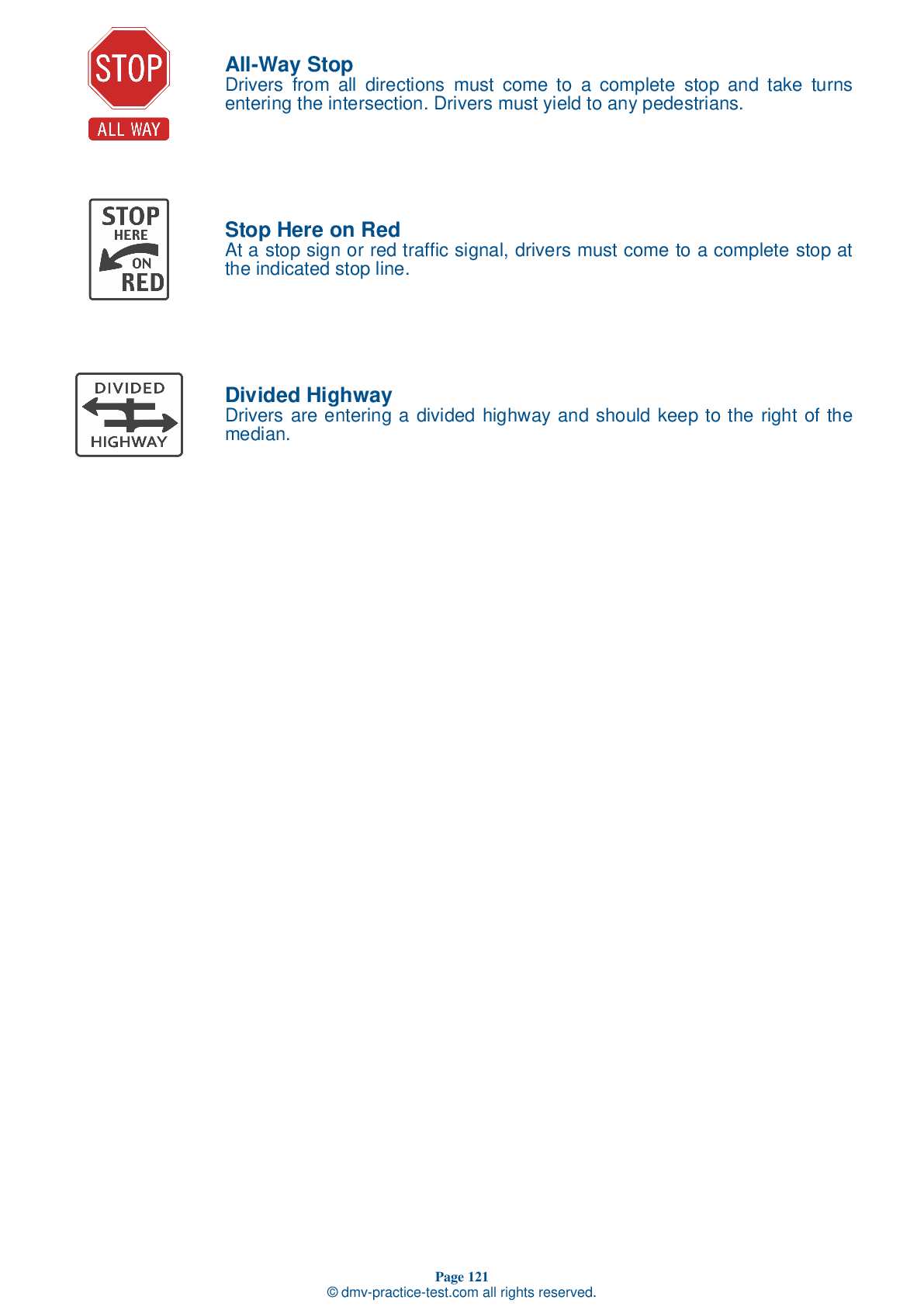Combination #1
Combination Vehicles Practice Test | Georgia 2026 #1 Page 3 of 3
Train for FREE online with our Georgia CDL combination vehicle test. The official exam test consists of several obligatory parts, with all of them checking your knowledge of different blocks of road rules. If you need to obtain a GA combination license in 2026, practice as much as possible. Free sample tests published on our website will help you check and improve your knowledge and boost your grades. Please bear in mind that DMV requirements for issuing a combination license may vary from state to state.
20
16
20
15 . Starting in which year were newly manufactured trailers required to have ABS?
2004
All trailers and converter dollies manufactured on or after March 1, 1998 must be equipped with Anti-Lock Braking Systems (ABS).
16 . Using the trailer hand brake while experiencing a trailer jackknife will:
Continue the skid.
If you are experiencing a trailer jackknife, you can help your tires regain traction by releasing the brakes. Using a trailer hand brake while experiencing a skid will only cause the skid to continue.
17 . The service air line is attached to the:
Steering wheel.
The service air line carries air and is controlled by either the foot brake or trailer hand brake. The service air line is attached to relay valves, which allow the trailer brakes to be applied quickly.
18 . Rollovers are most likely to happen when:
It is raining.
Rollovers happen when an operator turns too fast. Drivers should be sure to slow down before entering turns and curves, especially when transporting a fully-loaded rig.
19 . When backing up to couple a trailer, you should position the tractor:
At a 60-degree angle in front of the trailer.
When backing up to couple a trailer, you should position the tractor directly in front of the trailer. Trying to couple while backing at an angle could cause the trailer to move and the landing gear to break.
20 . In a double or triple combination:
The weight of the trailers does not matter.
When positioning trailers in a combination, the most heavily-loaded trailer should be the closest to the tractor. The lightest trailer should be positioned in the rear.
2026 Georgia | Frequently Asked Questions
A CDL Class B license in Georgia allows the holder to operate commercial vehicles weighing more than 26,000 pounds or towing vehicles not exceeding 10,000 pounds. This includes buses, dump trucks, tow trucks, and straight trucks. The license also requires passing a general knowledge test and an additional skills test related to the specific vehicle.
A Class B CDL license in Georgia allows the holder to operate single vehicles with a gross vehicle weight rating (GVWR) of 26,001 pounds or more, or any such vehicle towing another not exceeding 10,000 pounds. This includes buses, dump trucks, segmented buses, delivery trucks, and utility trucks. However, it does not allow for operation of a semi-truck.
To acquire a Class B CDL license in Georgia, you must be at least 18 years old (21 for interstate driving), possess a valid Georgia driver's license, pass a vision exam, and obtain a medical certificate. You must also pass the General Knowledge test, the Air Brakes test if applicable, and the skills test for the type of vehicle you'll operate.
In Georgia, you must be at least 18 years old to qualify for a Class B Commercial Driver's License (CDL) for intrastate driving (within state borders). However, you must be at least 21 years old to drive commercial vehicles interstate (across state borders) or to transport hazardous materials.
Specific endorsements aren't necessary for a Class B CDL license, but they can provide additional driving privileges. For example, endorsements are available for passenger vehicles, school buses, tank vehicles, and hazardous materials. To obtain these endorsements, you must pass additional written and skills tests related to the specific type of vehicle or cargo.
The Class B CDL skills assessment in Georgia includes three parts: a pre-trip vehicle inspection, a basic vehicle control test, and an on-road driving test. The pre-trip inspection tests your ability to check the vehicle for safety before driving. The basic control test evaluates your ability to maneuver and control the vehicle. The on-road test assesses your ability to safely drive in various traffic situations.
Yes, Class B CDL license holders in Georgia are limited to operating vehicles with a GVWR of 26,001 pounds or more, or a vehicle towing another vehicle weighing up to 10,000 pounds. They cannot operate a combination of vehicles with a GVWR of 26,001 pounds or more if the vehicle being towed exceeds 10,000 pounds. They also can't drive Class A vehicles unless they have the appropriate endorsement.
In Georgia, the written Class B CDL test is primarily administered in English. However, some locations may offer the test in Spanish. It's important to note that federal regulations require all CDL holders to have a basic understanding of English to ensure safety on the roads. Therefore, even if the test is taken in another language, English proficiency is still required.
Yes, you can request accommodations for the Class B CDL written exam if you have a disability. The Georgia Department of Driver Services provides reasonable testing accommodations in accordance with the Americans with Disabilities Act. You'll need to provide appropriate documentation of your disability and specify your required accommodation when you schedule your test.
Yes, if you don't pass the Class B CDL written test in Georgia, you can retake it. However, you must wait one day before retesting. There's no limit to the number of times you can retake the test, but each attempt costs $10. It's advisable to study thoroughly to increase your chances of passing on the next attempt.



